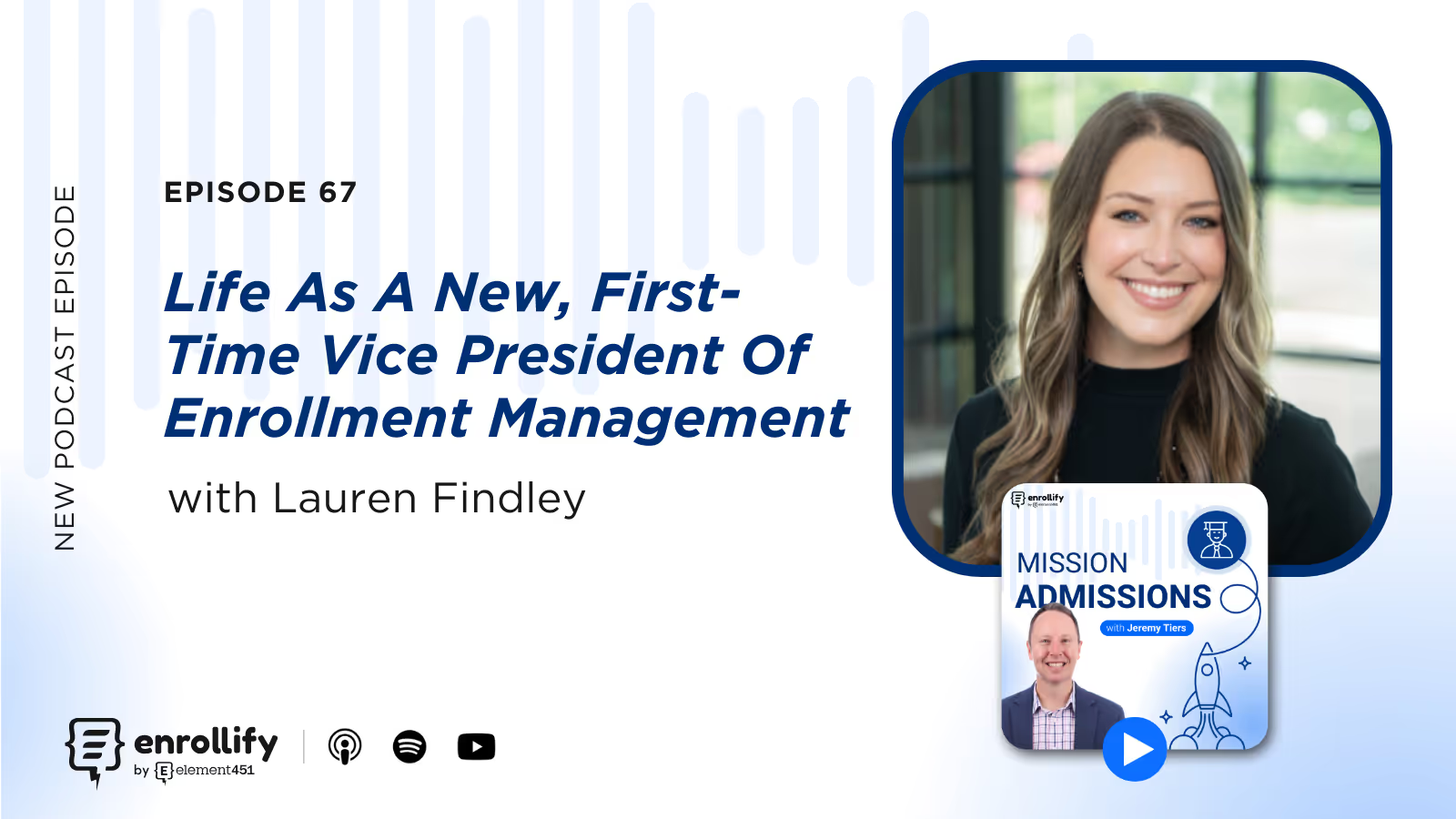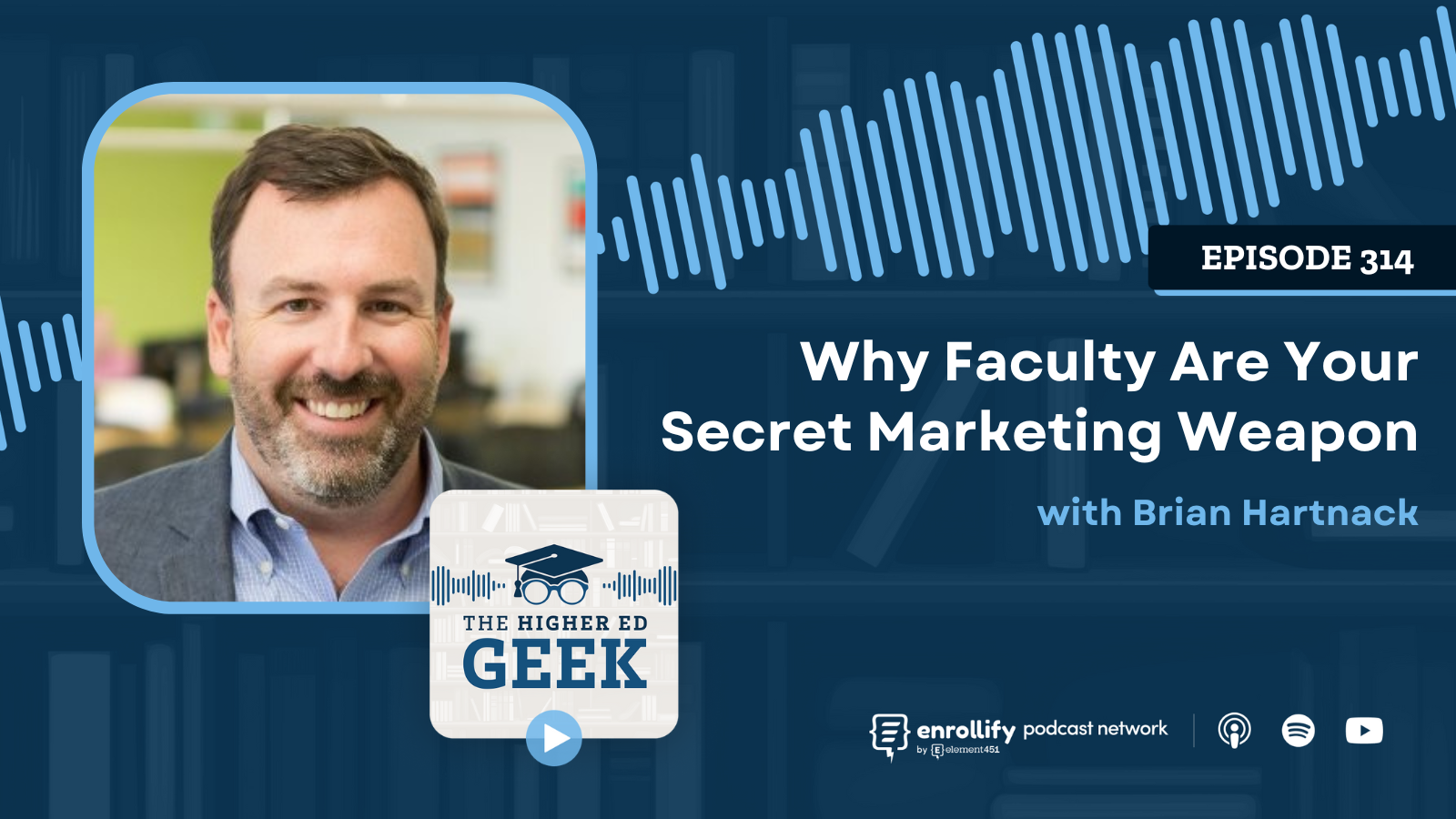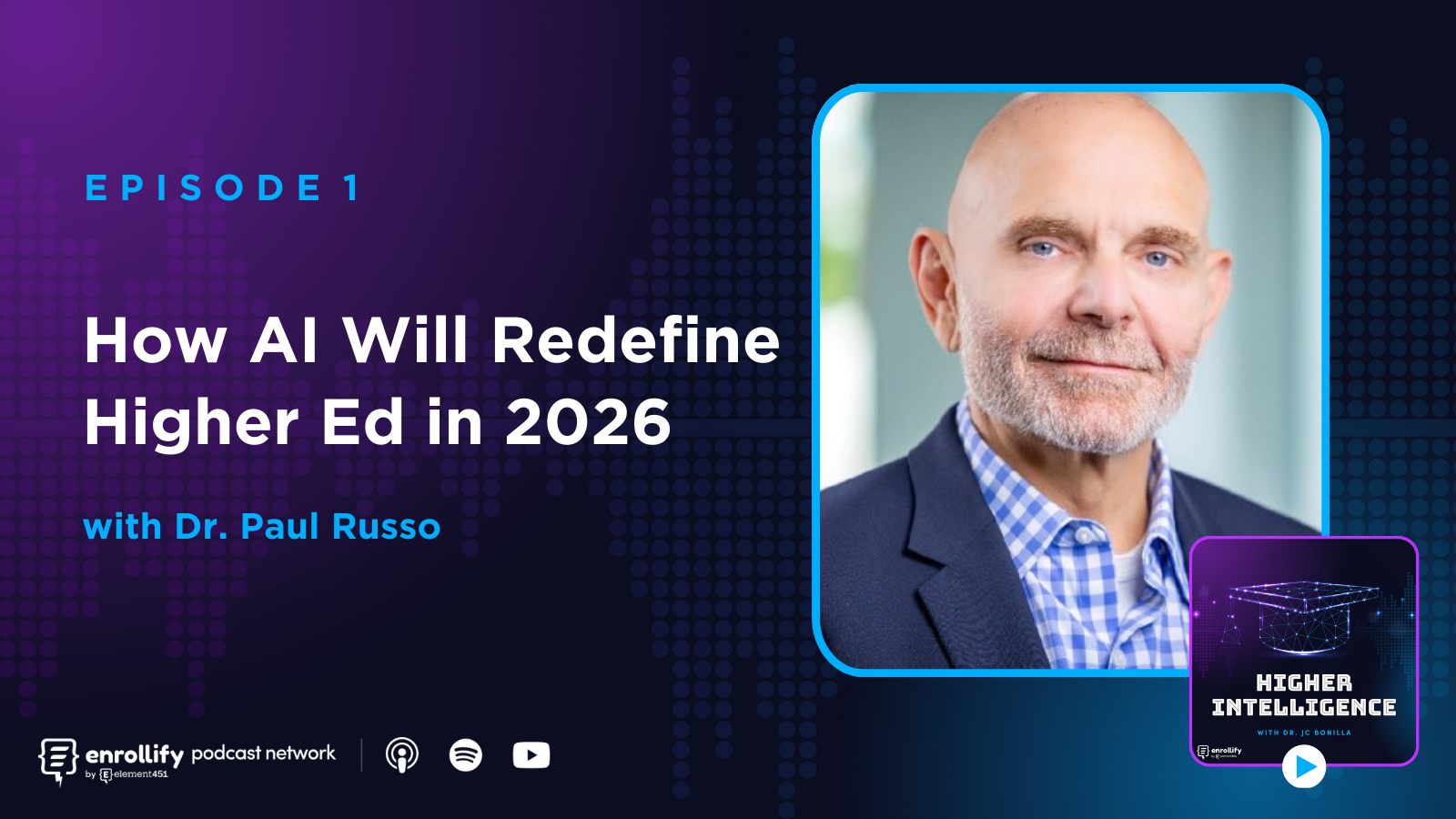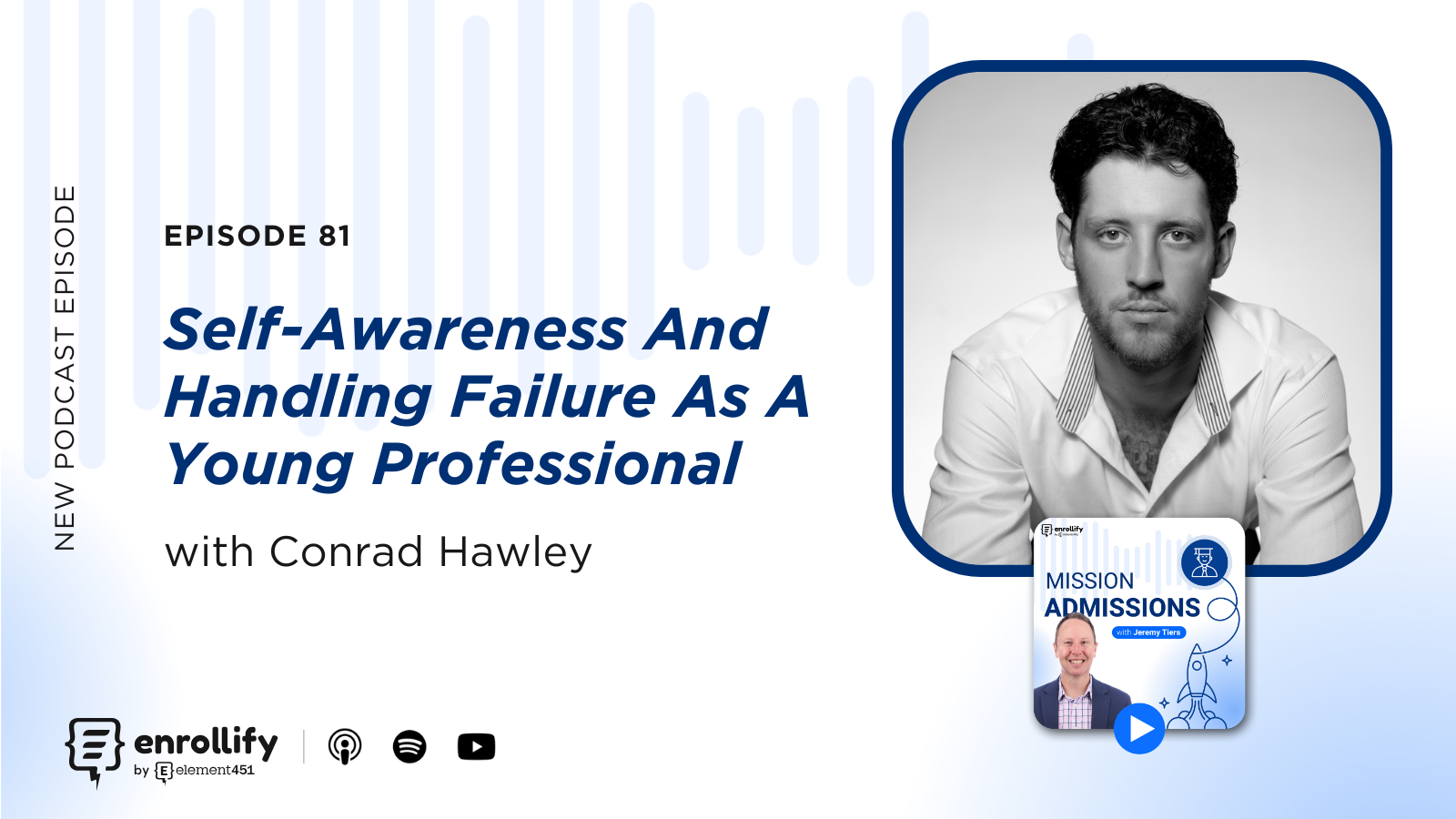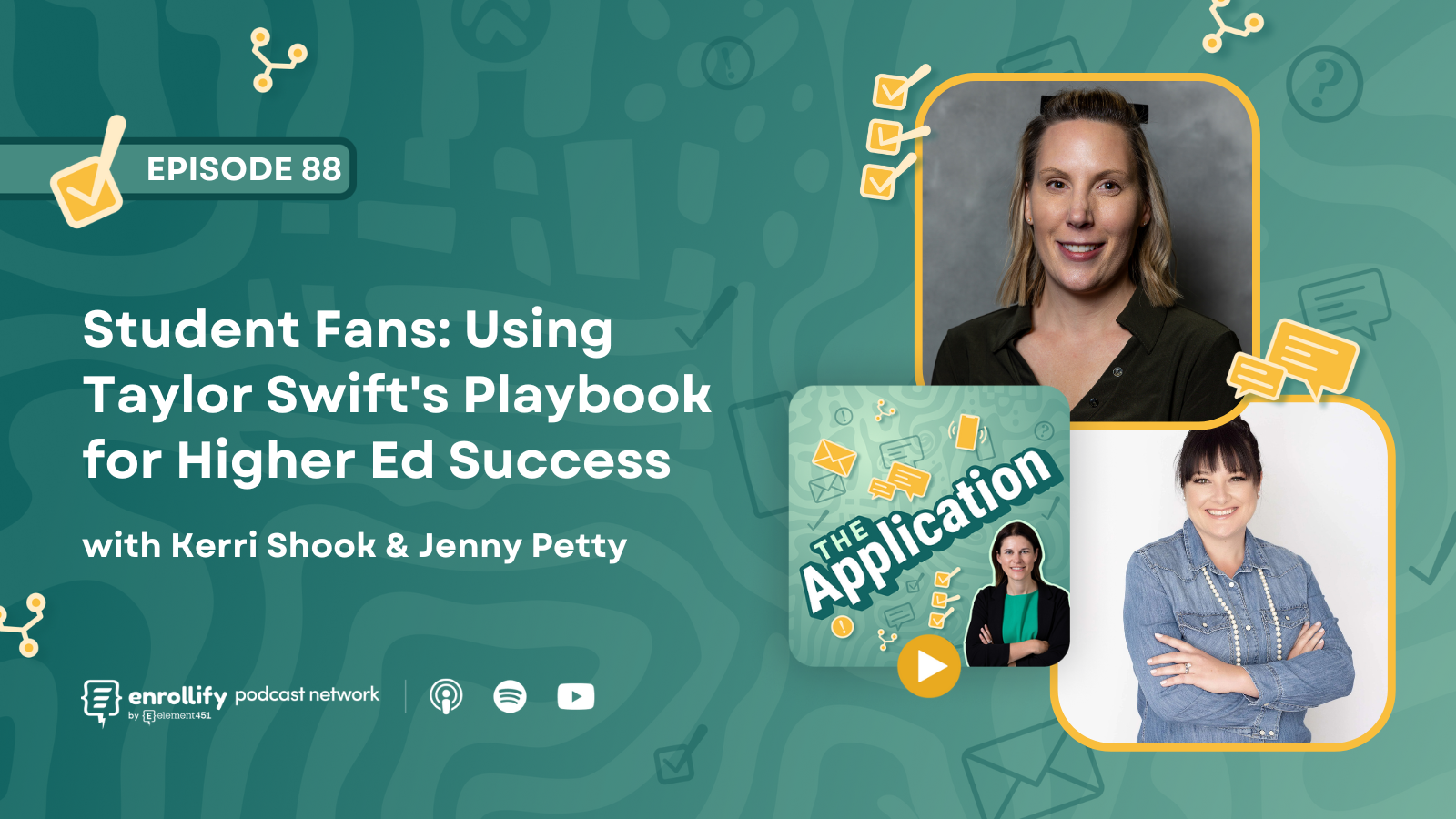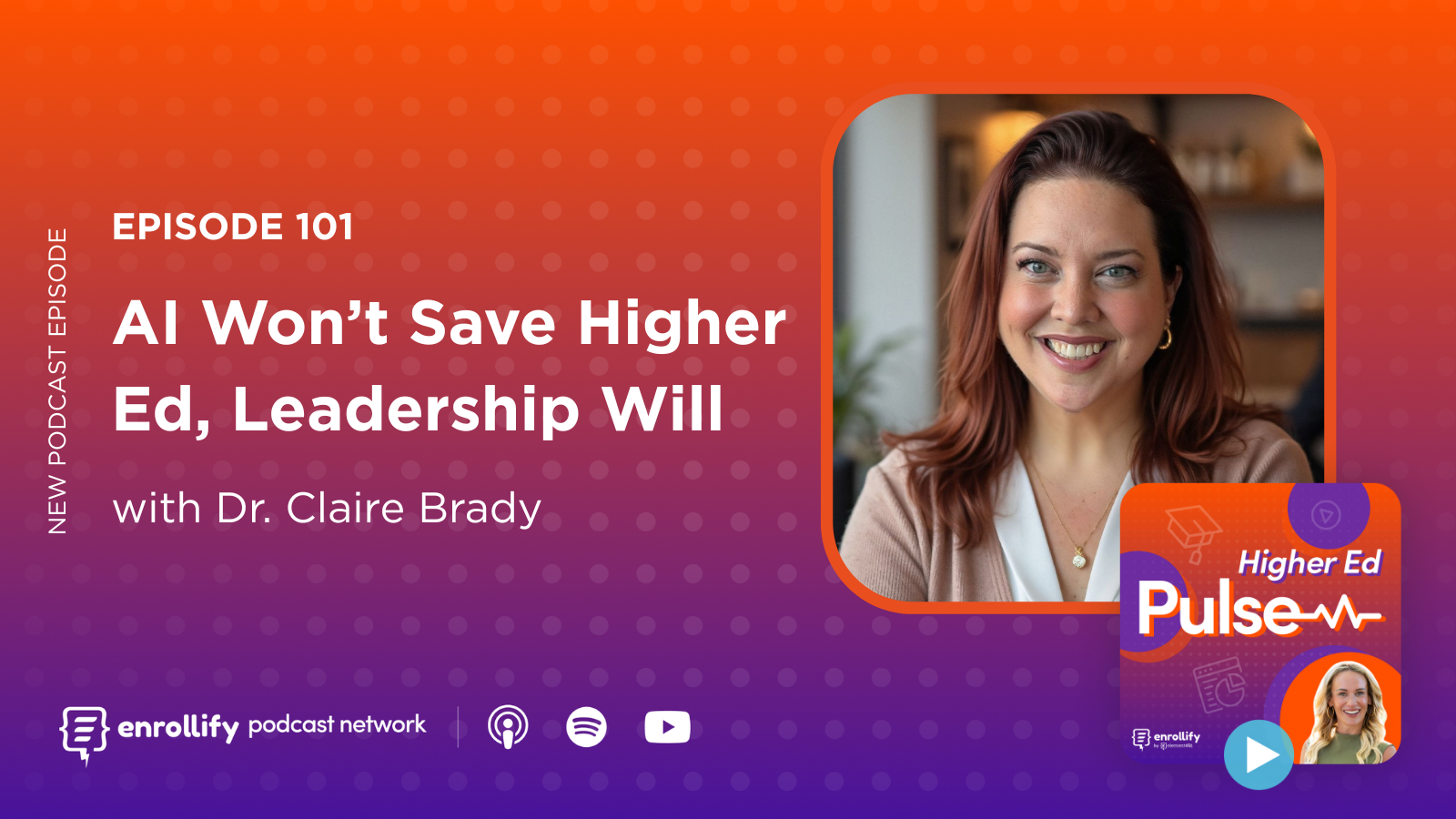About the Episode
Got a story to tell? An innovative idea to share? Fill out our guest nomination form and let's chat!
About the Episode:
In this episode of Mission Admissions, host Jeremy Tiers chats with Lauren Findley about her first 120 days as a first-time Vice President of Enrollment Management.
Key Takeaways
- Returning to Recruitment Basics: Lauren’s first priority as a VP was leaning into foundational recruitment and customer service tactics to quickly build credibility and impact.
- Mastering Calendar and Relationship Management: The biggest adjustment wasn’t strategy—it was time-blocking, note-taking, and managing the sheer volume of new people and priorities.
- Strategic Wins Don’t Have to Be Big: Early low-hanging fruit like mailing financial aid letters helped build momentum and trust quickly.
- You Can’t Lead Alone: Lauren emphasized leaning on a professional network, being humble enough to ask for help, and investing in both personal and team development.
- Culture Eats Strategy for Breakfast: From one-on-ones to donuts and coffee meetups, Lauren prioritized building trust and culture before trying to enact deep change.
- Leadership Doesn’t Mean Doing It All: Transitioning from "doer" to "strategic leader" was tough—but crucial for long-term success.
What skills helped Lauren Findley hit the ground running as a new VP of Enrollment Management?
Lauren emphasized sticking with what she knows best: recruitment. She brought a student-first, customer service-oriented mindset and used it as the foundation for her approach. Even though the university environment was new, the challenges weren't. She focused on using recruitment fundamentals to build relationships, provide clarity, and guide strategy—especially helpful in her first few weeks when everything was unfamiliar. Alongside those skills, she developed strong organizational systems, like detailed electronic note-taking and time-blocking, to stay on top of an avalanche of meetings.
What were Lauren’s priorities in her first week on the job?
Before even stepping on campus, Lauren was already laying the groundwork—networking, attending a new VP session, and analyzing data. But when day one arrived, her main focus was building relationships. She prioritized one-on-one and group conversations with staff, soaked up team dynamics, and even took a campus tour. Uniquely, her first week included participating in a university-wide strategic planning meeting—giving her visibility into institutional goals and helping build cross-campus relationships early.
How did Lauren approach building trust with her team and colleagues?
Lauren came into a leadership gap where there were no AVPs or directors beneath her in admissions. She responded by rolling up her sleeves and spending time in the trenches—holding one-on-ones, grouping teams by function, and asking meaningful questions like “What do you like most and least about your job?” These early conversations weren’t just checkboxes—they helped her identify inefficiencies, boost morale, and build trust. She also orchestrated a divisional meet-and-greet, reinforcing a culture of collaboration from day one.
How did she balance strategy and relationship-building in her first 120 days?
Lauren estimated she spent about 60% of her time building relationships—both on campus and in the community. From cultivating new partnerships to understanding interdepartmental workflows, much of her early work involved learning who does what and where improvements were possible. Strategically, she focused on achievable wins—like mailing financial aid letters—and leaned into data and CRM analytics to inform decisions. She also acknowledged the tough shift from being a “doer” to being a leader who delegates and thinks big-picture.
What challenges did Lauren face transitioning from director to VP?
One of the biggest hurdles was letting go of her comfort zone—being hands-on with tools like the CRM. She struggled with asking others for help on tasks she used to do herself, but soon realized that leading meant trusting her team. Another major adjustment was budgeting based on enrollment projections—something new for her coming from a public institution. Lauren leaned on her professional network, vendor partnerships, and articles to get up to speed and make confident, informed decisions.
How important was her professional network during this transition?
Crucial. Lauren shared that she consistently leaned on her network for advice, best practices, and emotional support. Whether it was reaching out to former colleagues, asking vendor partners for guidance, or staying informed through articles and blogs, her external support system helped her problem-solve in real time. She also emphasized staying active in professional development, committing a few hours weekly to reading, webinars, and industry updates—not just for herself, but as a model for her team.
What advice does she have for new leaders navigating institutional politics and cabinet meetings?
Lauren recommends establishing meeting expectations early—especially with institutional leaders like the president. She keeps her updates data-driven and high-level, always ready to share quick wins or raise red flags. Attending the president’s speaking engagements helped her better understand what messaging resonates at the top, so she could align her updates accordingly. Her broader advice: be confident, but humble—speak up when needed, but never hesitate to ask questions or listen more than you talk.
How did she navigate a cross-state move and being apart from her family?
Lauren candidly shared that living alone for the first time was both tough and empowering. With her husband back in Alabama and her dog by her side in Fort Worth, she found ways to maintain balance—long walks, evening calls, exploring the city, and giving herself grace during this period of transition. She also highlighted the emotional importance of clear communication with her partner and maintaining a strong support system—reminding listeners that life changes affect leadership just as much as job changes do.
What’s inspiring Lauren as a leader right now?
Mentorship. Lauren finds inspiration both from mentors who have shaped her leadership journey and from those she now mentors. Watching former team members thrive in new roles—and being able to support them along the way—has reinforced her passion for servant leadership. It’s also a reminder that the ripple effects of effective leadership extend far beyond your current role or institution.
Connect With Our Host:
Jeremy Tiers
https://twitter.com/CoachTiers
Attend the 2025 Engage Summit!
The Engage Summit is the premier conference for forward-thinking leaders and practitioners dedicated to exploring the transformative power of AI in education.
Explore the strategies and tools to step into the next generation of student engagement, supercharged by AI. You'll leave ready to deliver the most personalized digital engagement experience every step of the way.
👉🏻 Register now to secure your spot in Charlotte, NC, on June 24-25, 2025!







